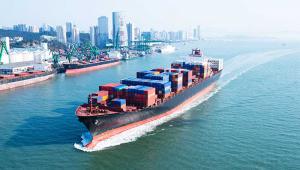At a three-day summit in Beijing, the president Xi promised to ensure the transparency and the “fiscal sustainability” of China’s Belt and Road project.
Announced in 2013 and taking in 152 countries, the $1 trillion initiative has funded numerous train, road, and port improvements across the world. “Belt” refers to enhancements of road and rail links and “road” to sea routes.
In an official press release, China describes the initiative as a “a bid to enhance regional connectivity and embrace a brighter future”. But critics see it as manifestation of the country’s over-dominance in global affairs.
The initiative has been criticised leading to debt in participating countries. For example, following a deal sealed in 2017, Sri Lanka was forced to hand the over its new Hambantota international port to the Chinese the following year, when it was unable to keep up loan payments.
The summit is being attended by national leader including Russian President Vladimir Putin and Italian Prime Minister Giuseppe Conte. Xi repeated the message of “connectivity and practical cooperation” saying that the Belt and Road project would have “zero tolerance for corruption” and deliver “win-win outcomes and common development” .
He said: “We also need to ensure the commercial and fiscal sustainability of all projects so that they will achieve their intended goals.”
In December, China and the US countries suspended retaliatory tariffs.
Anticipating the resumption of trade talks between the two countries next week, Xi told the summit: “We will overhaul and abolish unjustified regulations, subsidies and practices that impede fair competition and distort the market. We hope that other countries will also create an enabling environment of investment, treat Chinese enterprises, students and scholars as equals, and provide a fair and friendly environment for them.”
China donates more international aid than any other country, allocating $38bn in 2014. But, as a recent PF article reported, that China is not a member of the OECD and does not meet the organisation’s strict tests on what can or cannot be defined as overseas development aid.












